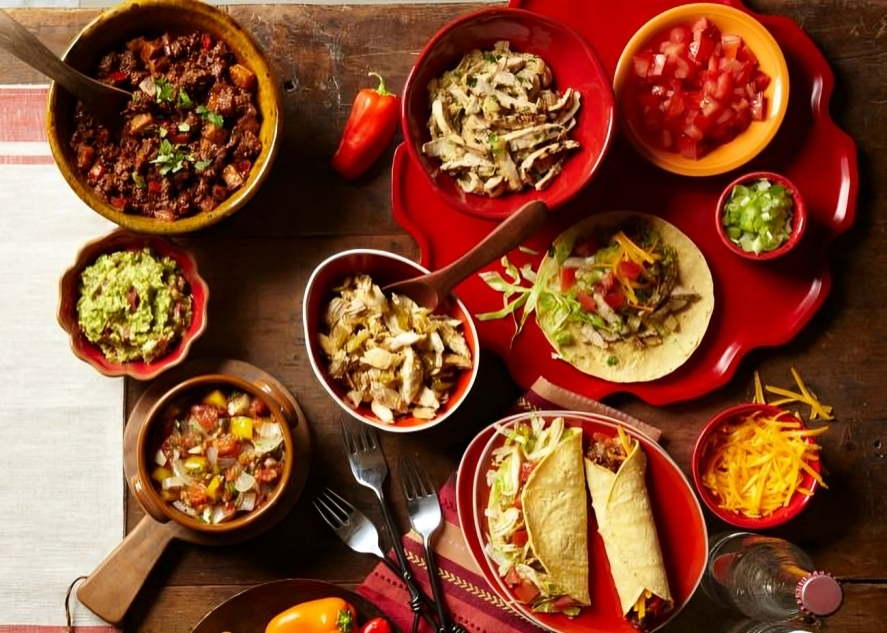News
Hope trumps heartache in today’s Africa- Hon Louise Mushikiwabo, Minister of Foreign Affairs and Cooperation

Bundestag, Berlin, Germany, January 31, 2013
Chairpersons and members of the Committees on Economic Cooperation and Development, Foreign Affairs and Human Rights & Humanitarian Aid:
Please accept my thanks for the opportunity to address not one, but three, esteemed committees of the Bundestag today.
First and foremost, this offers a unique forum from which to convey to a broad cross-section of Germany’s political leadership the warm appreciation of the government and people of Rwanda for the support and generosity your country has shown ours over many years.
A spirit of constructive engagement and cooperation has been, and continues to be, the hallmark of Germany-Rwanda relations. It is my sincere hope, and that of my government, that this spirit lives on — up until, as well as beyond, the point at which Rwanda has reached our desired goal of self-sufficiency and independence from aid.
Beyond donor and recipient, Rwanda looks forward to an enduring partnership with Germany built around trade, education and cultural exchanges, as well as collaboration on the international stage where our interests coincide, whether on climate change, the rights of women and minorities, or the promotion of peace and security wherever and whenever its absence threatens vulnerable populations.
Let me directly address the question that has complicated relations between our countries since last year, namely the ongoing strife in the eastern DRC. In June last year, the Group of Experts on the DRC included an addendum to their regular report to the UNSC Sanctions Committee that contained a series of claims of Rwandan support for a mutiny by the so-called M23 group.
On July 28th 2012, on the same day my government issued its rebuttal to these serious, but seriously flawed, allegations, the government of Germany announced its intention to suspend aid to Rwanda. In so doing, Germany joined a number of countries and multilateral agencies whose understandable concern about the grave situation in the DRC expressed itself by suspending or delaying the disbursement of development assistance to Rwanda.
While the Government of Rwanda is disappointed that some development partners took such courses of action, especially bases on such flawed and flimsy evidence, we also fully respect their right to do so. Rwanda is a grateful recipient of donor support, as evidenced by our judicious and transparent use of such funds, but we do not take it for granted. Indeed, events of last year were a stark and timely reminder that, in order to build a sustainable and prosperous future, Rwanda must first secure self-sufficiency. This is not to deny or dismiss the critical role development partners, none more than Germany, have played in Rwanda’s journey post-1994; it is simply to recognise that true independence will remain beyond our reach until we have built a society and an economy capable of sustaining itself.
With regard to the specific allegations made against Rwanda by the Group of Experts, I am more than happy to field as many questions as you have.
The bottom line for Rwanda is this: our national interest is not served by conflict or instability at our borders; indeed, the opposite is true.
A secure and stable DRC is vital for Rwanda’s own economic prospects. If we can play a role in helping build a lasting peace in the eastern DRC, Rwanda will do so. As clear evidence of this, Rwanda stood ready just a matter of days ago to add its signature to the UN framework sponsored by the Secretary-General during the African Union Summit in Addis Ababa. Due to reservations on the part of other member-states, the fate of the proposed framework remains somewhat unclear; what is crystal clear, however, is Rwanda’s willingness to take part in a constructive solution. At the same time, we continue to urge our friends and allies to look beyond sporadic flare-ups and quick fixes, and instead examine the underlying causes of conflict and resentment among the disparate populations of that long-troubled region.
Chairpersons,
Notwithstanding the DRC crisis and the impact of aid decisions on our national budget, I can report that Rwandans are realistic about the challenges that lie ahead for our country, as well as unwavering in our determination to meet them. Resilience, resourcefulness and optimism: these strains of our national character have sustained and nourished us in the eighteen years since tragedy brought Rwanda to its knees.
Last year, Rwanda was able to report on progress of our national strategy for economic development and poverty reduction, known as EDPRS. Apart from the widely reported fact that one million Rwandans have been able to lift themselves from poverty since 2005, the results of the EDPRS point to progress across a broad range of indicators. As such, we see no reason to deviate from our stated goal of achieving middle income nation status by 2020, and no reason to doubt we will achieve it. However, there remain areas of concern to the government, including: an inadequate supply of energy; insufficient private sector investment, and stubbornly high incidence of malnutrition among Rwandan children.
With the targeted contributions of GIZ via sector budget support and pooled funds, Rwanda can point to significant gains in the areas of HIV-AIDS treatment, family planning, and the national health insurance scheme which now covers 91 percent of the population. Indeed, health outcomes in Rwanda continue to improve rapidly across the board:
From 2005 to 2011, deaths from malaria dropped by 87.3%.
Between 2000 and 2010 the country’s maternal mortality ratio fell by 59.5%.
The probability that a child dies by the age of 5 years decreased by 70.4% between 2000 and 2011—falling below half of the regional average and approaching the global mean.
As reported earlier this month by the journal of the British Medical Association, if such progress continues, “Rwanda will be the only country in the region on track to meet each of the health related millennium development goals by 2015”.
Given the emphasis of successive German governments, over many decades, on health policy and service delivery in Rwanda, each one of you — and the parties you represent — can rightly feel you have played a part in enabling the dramatic improvement in the health status of the Rwandan people.
Beyond healthcare, we were pleased that GIZ in 2011, after consultations, identified private sector development and vocational training, along with decentralisation, as key focus areas for assistance. Our efforts to further reduce poverty and expand opportunity face derailment if we return to sluggish rates of GDP growth. And maintaining current momentum demands we continue public sector reforms while at the same time expanding and diversifying the role of the private sector. A further benefit of decentralisation is that it enhances the ability of Rwandan citizens to take part in the economic and political decisions that affect their lives, thereby helping expand the political space.
Another key priority for Rwanda post-genocide has been to harness the power of women to lead the nation through a critical period of reconciliation and rejuvenation. It is often cited that Rwanda, at 56 percent, has the highest proportion of women in any national parliament — but that is merely the tip of the iceberg. Seven of the country’s 14 Supreme Court justices are women. Across the public sector, we have easily exceeded the constitutional benchmark of 30 percent participation of women in leadership positions. Decentralisation policies have also greatly empowered women at the district, sector and village level. Increasingly, also, women are embracing the opportunities offered by a growing economy — notably, more than 30 percent of cooperatives are operated by women, and the government is actively promoting female entrepreneurship through low-cost loans. Most importantly, the prospects for Rwanda’s girls looks even brighter — we have already reached the MDG target for 90 percent enrolment in primary school among girls, and the participation of females at every level of education is increasing.
Finally, let me touch on Rwanda’s recent election to the UN Security Council for the 2013-14 term. Rwanda faced a choice in the aftermath of the 1994 genocide, during which the international community — mostly notably the United Nations — failed to act. Will rage at this historic transgression turn us into an insular and embittered nation — or can we transcend anger and instead seek more and better engagement with the world? We chose the latter, opting for a path of reconciliation both inside and outside our borders. Since then, we have become the biggest single African contributor to UN peacekeeping and policing efforts, from Darfur to Haiti. Drawing on our painful experience, we have led the debate on Responsibility to Protect as well as post-conflict peace building. Rwanda co-chairs the UN Secretary-General’s MDGs Advisory Group, as well as the Broadband Commission which aims to bridge the digital divide in poorer countries.
As we work with fellow members to advance the cause of peace at the Security Council, we unapologetically offer the perspective of a resurgent continent. For the first time in modern history, hope trumps heartache in today’s Africa. With this newfound optimism comes confidence that we are ready to face not only our own challenges, but our fair share of the world’s, too. We are ready to play our part.-
-

 Tech8 months ago
Tech8 months agoGuide to Nextdoorstudios: Your Ultimate Resource
-

 News9 months ago
News9 months agoTrump Mug Shot: Exploring the Controversy, Legal Aspects, and FAQs
-

 Home and Garden9 months ago
Home and Garden9 months agoExploring the World of Spelling Bee Forums: Your Ultimate Guide
-

 Entertainment8 months ago
Entertainment8 months agoIzanami Backwards: Unveiling the Mysteries
-

 Travel8 months ago
Travel8 months agoTravel Essentials for Women: Your Ultimate Guide
-

 Automotive8 months ago
Automotive8 months agoThe Ultimate Guide to Car Detailing Near Me
-

 Real Estate8 months ago
Real Estate8 months agoChoice Home Warranty Awards: Celebrating Excellence
-

 Entertainment8 months ago
Entertainment8 months agoUnraveling Octopath Traveler II NSP
















